Meet Our keynote Speakers and Panelists
Prof. Agnes Binagwaho
Vice Chancellor and Professor of pediatrics, University of Global Health Equity (UGHE)
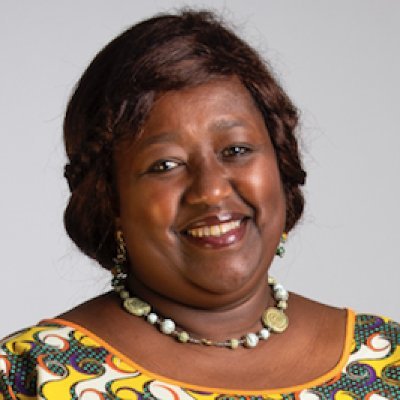
Prof. Agnes Binagwaho
Vice Chancellor and Professor of pediatrics, University of Global Health Equity (UGHE)
Professor Agnes Binagwaho will be a key Note Speaker on “Public Health and COVID-19 Management: Innovative Key Considerations for Developing Countries”
Professor Agnes Binagwaho, MD, M(Ped), PHD is the Vice Chancellor and co-founder of the University of Global Health Equity (UGHE) (in 2015), an initiative of Partners in Health which focuses on changing how health care is delivered around the world by training global health professionals who strive to deliver more equitable, quality health services for all.
She is a Rwandan pediatrician who returned to Rwanda in 1996, two years after the 1994 Genocide Against the Tutsi. Since then, (1996-2016), she has provided clinical care in the public sector and served the Rwandan Health Sector in high-level government positions, first as the Executive Secretary of Rwanda’s National AIDS Control Commission, then as Permanent Secretary of the Ministry of Health, and lastly as the Minister of Health for 5 years.
Professor Binagwaho specializes in emergency pediatrics, neonatology, and the treatment of HIV/AIDS. She completed her MD at the Université Libre de Bruxelles and her MA in Pediatrics at the Université de Bretagne Occidentale. She was also awarded an Honorary Doctor of Science from Dartmouth College and earned a Doctor of Philosophy from the University of Rwanda College of Medicine.
She currently serves as a member of several advisory boards and groups among them the Africa CDC Strategic Advisory Group of Experts and the Wellcome Global Monitor. She also serves as a member of various boards of directors including the Rockefeller Foundation Board of Trustees and the Consortium of University for Global Health. She currently also serves on the African Union Commission on COVID-19 Response under the leadership of HE President Ramaphosa of South Africa. She is a member of a number of international scientific committees, working groups and task forces in global health for different institutions such as the Think 20 (T20) and the United Nations as well as for independent organizations such as the Africa Europe Foundation. Prof. Binagwaho also sits on the editorial board of several scientific journals such as the British Medical Journal (BMJ).
Previously, she co-chaired the Millennium Development Goal Project Task Force on HIV/AIDS and Access to Essential Medicines for the Secretary-General of the United Nations under the leadership of Professor Jeffrey Sachs (MGGs, 2001-2006). Professor Binagwaho also co-chaired the Joint Learning Initiative on Children and HIV/AIDS (JLICA) (2006–09) and founded the Rwandan Pediatric Society, chairing it until 2019. Since 2016, she has been a member of the U.S. National Academy of Medicine, since 2017 a Fellow of the African Academy of Sciences, and a member of the World Academy of Sciences since 2021. In 2015, Professor Binagwaho received the annual Roux Prize and Ronald McDonald House Charities Award of Excellence. She was also named among the 100 Most Influential African Women for 2020 and 2021.
Professor Binagwaho is currently a Professor of Pediatrics at UGHE, a Senior Lecturer in the Department of Global Health and Social Medicine at Harvard Medical School and an Adjunct Clinical Professor of Pediatrics at Dartmouth’s Geisel School of Medicine. Her academic engagements include research in implementation science, human rights to health, social justice, health services delivery, health systems strengthening, HIV/AIDS, non-communicable diseases and pediatric care. She has published over 220 peer-reviewed articles.
Dr. Roger I. Glass (MD, PhD)
Director of the Fogarty International Center (FIC) at the United States National Institutes of Health (NIH)
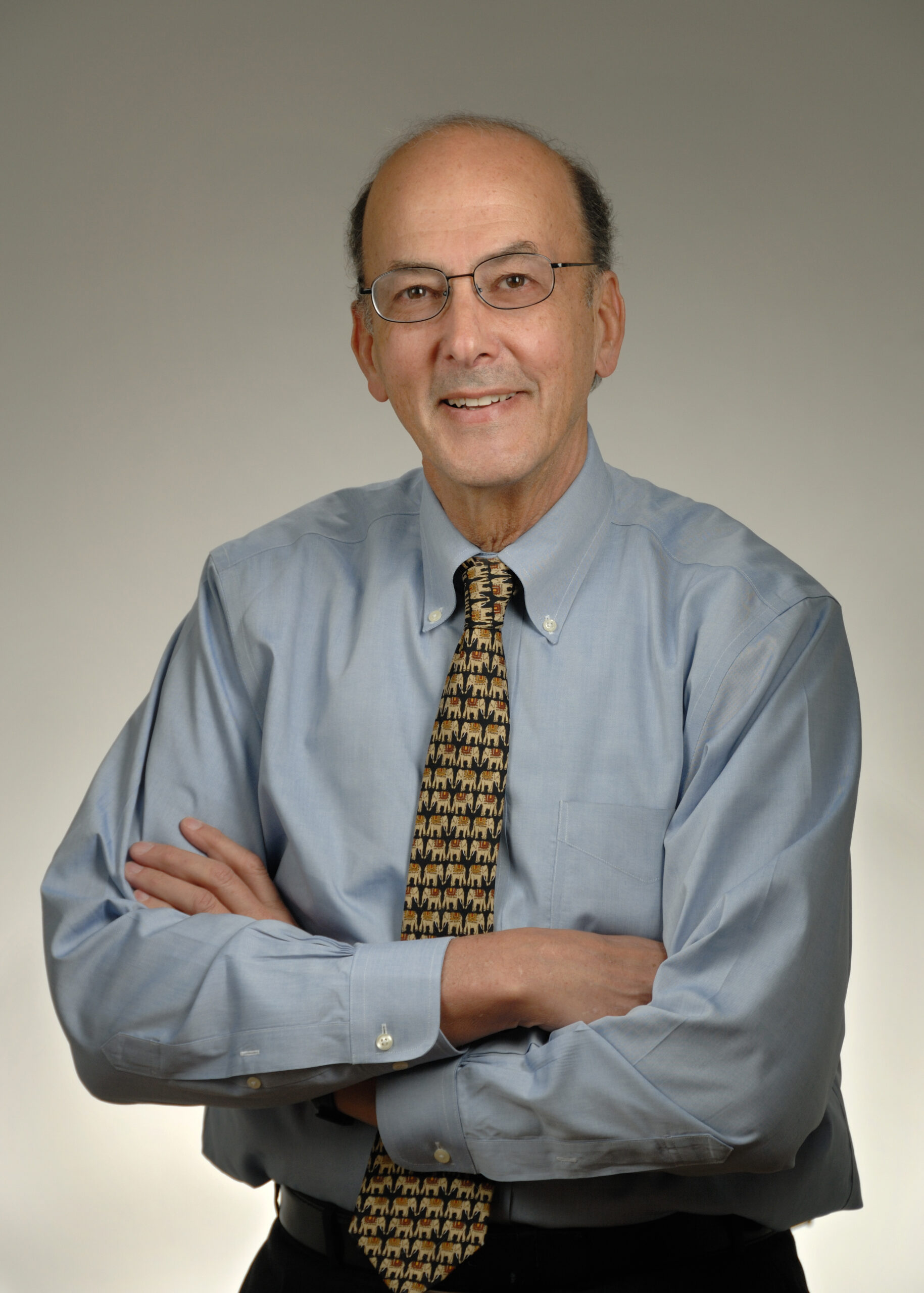
Dr. Roger I. Glass (MD, PhD)
Director of the Fogarty International Center (FIC) at the United States National Institutes of Health (NIH)
Dr Glass will be a key Note Speaker on “Global Perspective on Building resilience to public health crises and COVID-19 pandemic”
Dr. Glass was named Director of the Fogarty International Center and Associate Director for International Research by NIH Director Elias A. Zerhouni, M.D., on March 31, 2006.
Dr. Glass graduated from Harvard College in 1967, received a Fulbright Fellowship to study at the University of Buenos Aires in 1967, and received his M.D. from Harvard Medical School and his M.P.H. from the Harvard School of Public Health in 1972. He joined the Centers for Disease Control and Prevention in 1977 as a medical officer assigned to the Environmental Hazards Branch. He was a Scientist at the International Center for Diarrheal Disease Research in Bangladesh (ICDDRB) from 1979-1983 and returned to Sweden where he received his doctorate from the University of Goteborg. In 1984, he joined the National Institutes of Health Laboratory of Infectious Diseases, where he worked on the molecular biology of rotavirus. In 1986, Dr. Glass returned to the CDC to become Chief of the Viral Gastroenteritis Unit at the National Center for Infectious Diseases.
Dr. Glass's research interests are in the prevention of gastroenteritis from rotaviruses and noroviruses through the application of novel scientific research. He has maintained field studies in India, Bangladesh, Brazil, Mexico, Israel, Russia, Vietnam, China and elsewhere. His research has been targeted toward epidemiologic studies to anticipate the introduction of rotavirus vaccines. He is fluent and often lectures in five languages.
Dr. Glass has received numerous awards including the prestigious Charles C. Shepard Lifetime Scientific Achievement Award presented by the CDC in recognition of his 30-year career of scientific research application and leadership, the Dr. Charles Merieux Award from the National Foundation for Infectious Diseases for his work on rotavirus vaccines in the developing world. Dr. Glass is also the recipient of the Albert B. Sabin Gold Medal Award, Georgetown University’s Cura Personalis Award, Research!America’s Geoffrey Beene Builders of Science Award, Rice University’s Rice 360˚ Institute for Global Health Award, and the Jimmy and Rosalynn Carter Humanitarian Award from the National Foundation for Infectious Diseases. He is a member of the Institute of Medicine of the U.S. National Academy of Medicine. Dr. Glass has co-authored more than 600 research papers and chapters.
He is married to Barbara Stoll, M.D., the H. Wayne Hightower Distinguished Professor in the Medical Sciences and former Dean of the University of the Texas Medical School at Houston, and the father of three children: Nina, Michael and Andy Glass.
Prof. Wilfred Ndifon
Chief Scientific Officer, AIMS
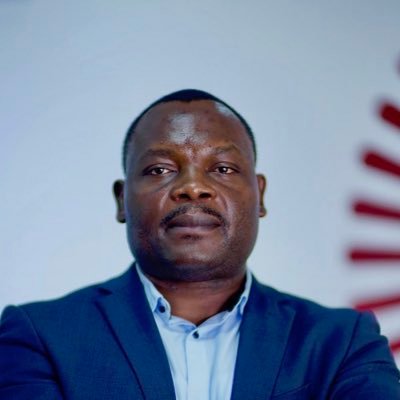
Prof. Wilfred Ndifon
Chief Scientific Officer, AIMS
Dr. Wilfred Ndifon will be a Key Note Speaker on “Predicting and monitoring the impact of COVID-19 pandemic”
Dr Wilfred Ndifon is a theoretical biologist who conducts research at the interface of the mathematical and biological sciences, with a primary interest in elucidating the mechanisms that govern immune responses to diseases. Also of interest is the investigation of clinical applications of the basic scientific work, including designing improved diagnostics and vaccines.
His scientific contributions include: i) a pooled testing strategy for identifying SARS-CoV-2 at low prevalence (Ndifon et al, 2020). https://doi.org/10.1038/s41586-020-2885-5; ii) a mathematical instantiation of the output of a popular serological assay (Influenza Other Resp Viruses 5:206, 2011), an important theoretical prediction of which was experimentally validated (Lee et al. J Virol 87:9904, 2013); iii) discovery of steric antibody interference in influenza viruses (Proc Natl Acad Sci USA 106:8701), inspiring a new proposal to improve the efficacy of subunit influenza vaccines; iv) discovery of a physical rule that governs gene segment recombination at the genomic loci encoding T cell receptor beta chains (Proc Natl Acad Sci USA 109:15865, 2012); and v) a unifying mechanistic explanation of the intriguing immunological phenomenon of the original antigenic sin (J Roy Soc Interf 12:20150627, 2015).
He is the Chief Scientific Officer of the African Institute for Mathematical Sciences (AIMS) – Global Network. He holds a PhD degree from Princeton.
Dr. David J. Kalvin (PhD)
Department of Microbiology and Immunology, University of Dalhousie
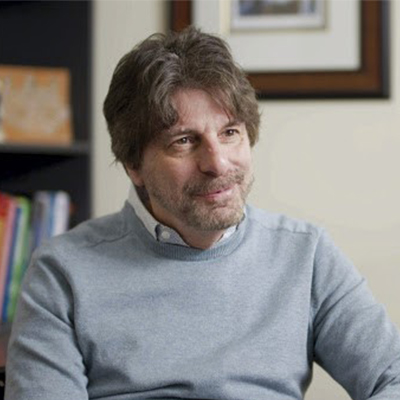
Dr. David J. Kalvin (PhD)
Department of Microbiology and Immunology, University of Dalhousie
Dr Kelvin will be a Key Note Speaker on “Vaccines and the Future for Developing Countries: The case of COVID-19 Pandemic crisis”
Dr. Kelvin is a Professor in the Department of Microbiology and Immunology at Dalhousie University in Halifax, Nova Scotia. His research focuses on infectious diseases that account for about 1/3 of all deaths worldwide. The majority of these are in developing countries where children are at the highest risk. Furthermore, infectious pathogens directly or indirectly lead to the development of 1/3 of all cancers. Dr. Kelvin’s research team conducts studies to identify pathogenic mechanisms of immune evasion and disease severity in ancient infectious diseases, infectious emerging diseases, and cancer development. His main studies are on host pathogen interactions in emerging and re-emerging infectious diseases. With extensive global collaborations, Dr. Kelvin has studied several important epidemics and pandemics, including SARS-CoV, pandemic H1N1, H7N9, MERS-CoV, and most recently SARS-CoV-2. Using systems biology approaches Dr. Kelvin’s team examines biomarkers and gene expression patterns to identify host signatures that can be used as diagnostic or prognostic markers od disease severity. This approach was used successfully to examine host responses in individuals infected with SARS-CoV-1 during the 2003 pandemic. His team were able to construct signatures of severe disease that included increased levels of circulating CXCL-10, IL-6, IL-10 and IL-15 as well as gene expression signatures of interferon response genes. Using more extensive tools covering a wide array of cytokines, inflammation, cardiovascular markers as well as single cell sequencing the international consortium studying SARS-CoV-2 led by Dr. Kelvin have identified key signatures of cytokines, clinical findings, and circulating levels of viral SARS-CoV-2 RNA, that identify patients requiring ICU admission. Further studies are examining the biomarkers in global populations in an attempt to define linkages between severe SARS-CoV-2, genetic susceptibility, socioeconomic conditions, comorbidities, age, and coinfections.
Dr. Kelvin has an internationally based research program and carries out studies in Shantou, China, Sardinia, Italy, and Canada (Dalhousie University). His central research programs include Ancient Pathogens, Cancer and Infectious Disease, and Emerging and Re-emerging Infectious Diseases. He has published in several high impact journals including Nature, Science, Nature Medicine, Nature Immunology, New England Journal of Medicine as well as several open access journals. Dr. Kelvin and several international colleagues established the Journal of Infection in Developing Countries (JIDC), an open access journal devoted to infectious diseases in resource limited countries. Dr. Kelvin also has research projects focused on ancient pathogens, pandemics and host immunity. To facilitate global collaborations Dr. Kelvin has appointments at Shantou University Medical College in Shantou PRC, and an Visiting Professor position at the University of Sassari in Sassari, Italy.
Mr. Stefan Leslie
Chief Executive Officer (CEO), Research Nova Scotia, Canada
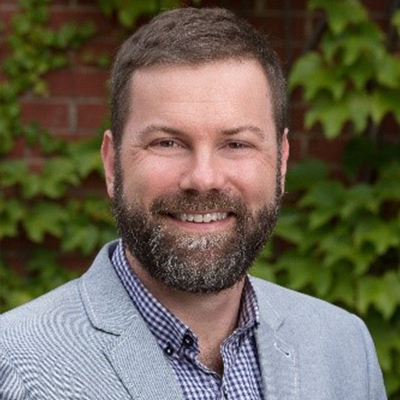
Mr. Stefan Leslie
Chief Executive Officer (CEO), Research Nova Scotia, Canada
Mr. Leslie will be a Key Note Speaker on “Strategic R&D Investment for improved Innovations to mitigate COVID-19 pandemic in developing countries”
Stefan Leslie is the Chief Executive Officer of Research Nova Scotia (RNS), an independent non-profit corporation with the mandate to organize, support and coordinate the funding of research in the province of Nova Scotia, Canada. RNS manages approximately 450 research grants at any one time, annually providing CAD$15-20 million for projects, people and infrastructure. Since the beginning of the pandemic, RNS has supported 23 COVID-19 research projects, including those related to vaccine development, testing strategies, virus detection systems, social and cultural impacts of the pandemic, and technology to reduce disease transmission.
Previously, Stefan was the director of a national marine research network. Before focusing on research, Stefan worked for fifteen years managing fisheries for the Canadian and New Zealand governments. There, Stefan’s research and operational interests were in the administration of natural resources, developing a cooperative model between industry and the public. This work was applied to the joint management of inshore fisheries, interactions with endangered species, the establishment of seabed protection areas, and developing a precautionary approach to resource management.
This approach is now being applied in the identification and funding of research, about half of which is related to health. Stefan operates on a partnership model, enabling contributing parties to identify and systematically address issues of public concern. Whether supporting students or building large, complex, multi-year projects, this work is focused on applying research to the challenges of society, and improving people’s lives, their community, and the natural environment.
Stefan has a bachelor’s degree in international development and a Master of Marine Management, both from Dalhousie University, Canada. He lives in Halifax, Nova Scotia, Canada.
Prof. Claude Mambo Muvunyi
Director General, RBC
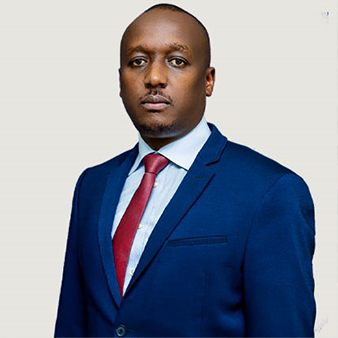
Prof. Claude Mambo Muvunyi
Director General, RBC
Prof Claude Mambo Muvunyi will be a key note Speaker on “African response to Control and Management of COVID-19 pandemic: The case of Rwanda”
Prof. Claude Mambo MUVUNYI is the Director General of Rwanda Biomedical Centre. He has more than 10 years of technical, managerial, and strategic experience and expertise in the field of clinical and public laboratory medicine with special focus on clinical microbiology, laboratory systems and service strengthening, and global health security.
Prof. Claude Mambo MUVUNYI is currently a full professor of clinical Microbiology and Laboratory Medicine. He holds a degree in general medicine from the university of Rwanda, a specialization and a PhD in Clinical Microbiology from the University of Ghent, Belgium. He also holds a master’s in medical Virology from the University of Manchester.
Prior to joining the RBC, Prof. Claude Mambo MUVUNYI was a Senior Regional Laboratory Advisor at ICAP at Columbia University, providing technical and strategic leadership support to the Laboratory program/project in building quality assured diagnostic capacities at all levels in the network (public and private health laboratories). He has also been a senior consultant for World Health Organization (WHO) supporting WHO’s programs for Antimicrobial Resistance (AMR) surveillance and diagnostic capacity building for infectious disease in African countries. He has been the Head of National reference Laboratory, and the Director of Microbiology unit as well as a study physician for AIDS Vaccine clinical and feasibility research at Project San Francisco.
He has published papers in several international and regional peer-reviewed journals and has made numerous presentations in international conferences. His research interests include evaluation of diagnostic methods (molecular and serological) for infectious diseases and operational research on diagnostic implementation and scale up to assess the impact of the new diagnostic for infectious diseases.
Ms. Melissa Rusanganwa
Head of Africa Regulatory Affairs, Zipline

Ms. Melissa Rusanganwa
Head of Africa Regulatory Affairs, Zipline
Ms. Melissa holds a double degree in Political Science with a concentration in Global Governance & International Studies and Diplomacy from Bishop's University in Canada. Before joining Zipline, Melissa worked in Canada in Specialty Pharmacy and interned at the International Civil Aviation Organization. She interned at Rwanda Civil Aviation Authority and grew an urge to come back home to Rwanda. She finally moved back to Rwanda to be part of the country's development and joined the Zipline team.
Melissa started at Zipline as Public Affairs Lead to handle Governmental Affairs and has grown in her role to Head of Africa Regulatory Affairs. She manages Zipline's integration and regulatory approvals into the national airspace on the African continent. She has over the years solidified relationships with different Governmental stakeholders and Regulators and continues to do so to date. Her role has assisted in the smooth operations of Zipline and its integration into the national airspace